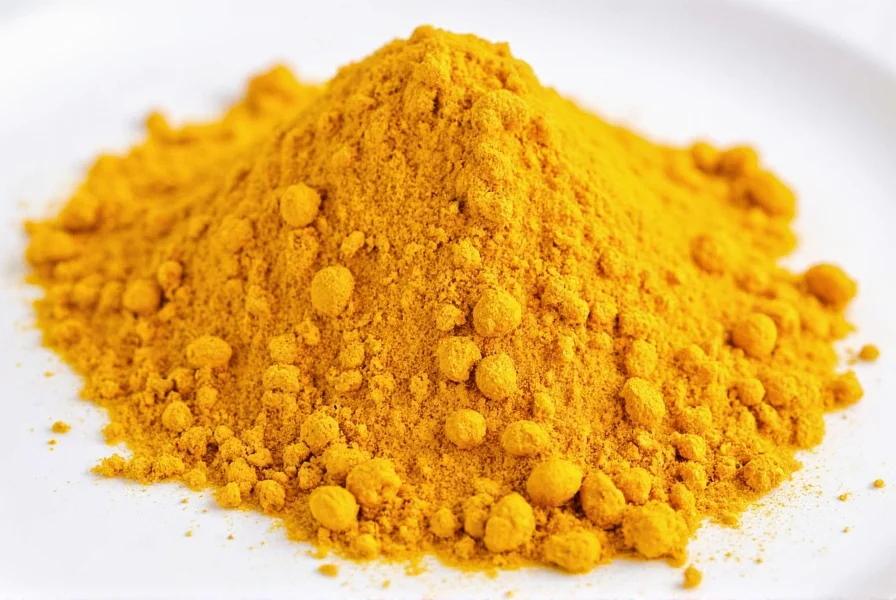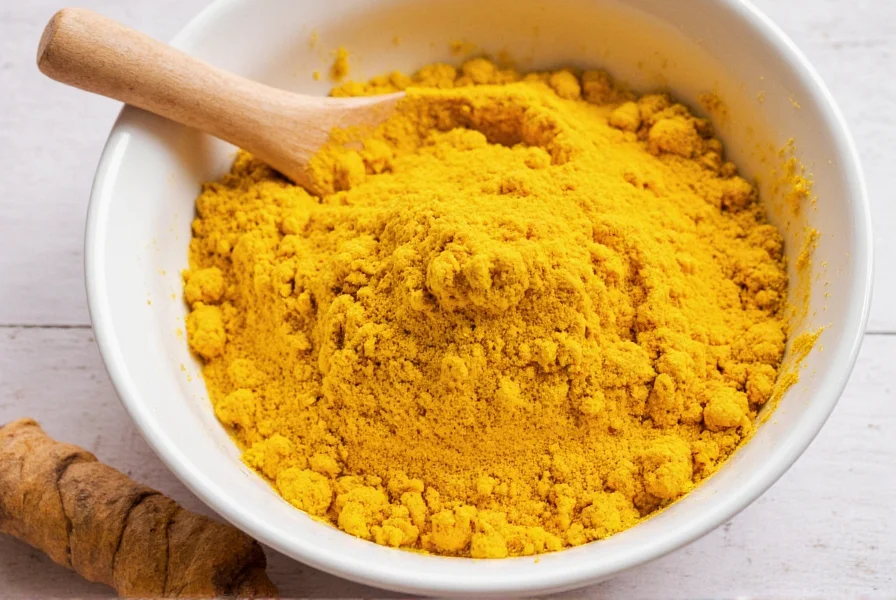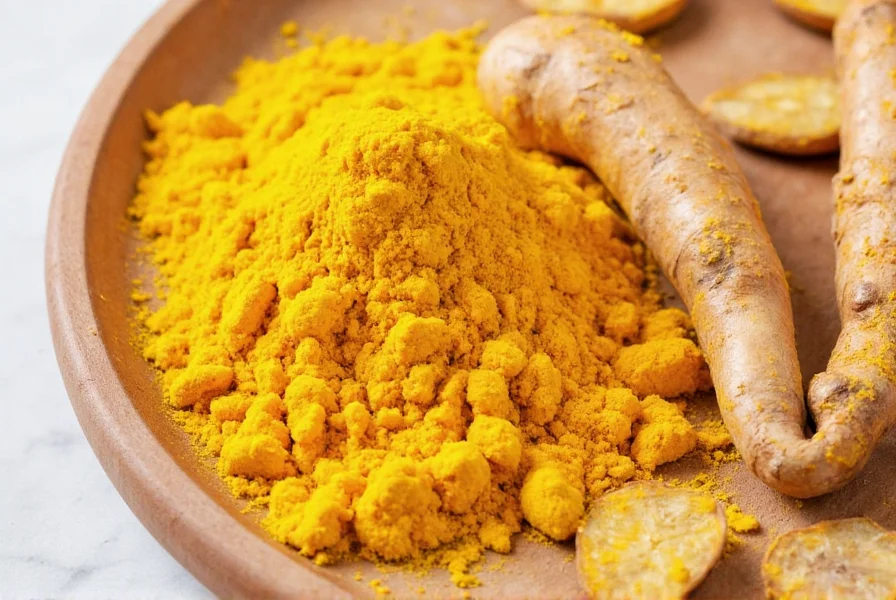For centuries, traditional medicine systems have utilized turmeric as a natural remedy for various ailments. Modern science is now investigating these historical claims, particularly regarding turmeric's potential effects on liver function and protection. As interest in natural approaches to liver support grows, understanding the actual science behind turmeric for liver health becomes increasingly important.
The Science Behind Turmeric and Liver Function
Turmeric (Curcuma longa) contains curcuminoids, with curcumin being the most studied active compound. Curcumin demonstrates potent anti-inflammatory and antioxidant properties that appear relevant to liver health. The liver, responsible for detoxification and metabolism, faces constant oxidative stress from environmental toxins, medications, and metabolic byproducts. Curcumin may help by:
- Modulating inflammatory pathways like NF-kB that contribute to liver damage
- Boosting the body's natural antioxidant enzymes including glutathione
- Reducing lipid peroxidation that damages liver cells
- Supporting phase II detoxification enzymes in the liver
- Inhibiting hepatic stellate cell activation involved in liver fibrosis
These mechanisms suggest why turmeric for liver detoxification has gained attention, though the actual clinical effects require careful examination of available evidence.
Research Evidence on Turmeric for Liver Health
Multiple studies have investigated curcumin's effects on various liver conditions. The most promising research focuses on non-alcoholic fatty liver disease (NAFLD), which affects approximately 25% of the global population. A 2016 randomized controlled trial published in Nutrition Journal found that 70 participants with NAFLD who took 70mg of nano-curcumin daily for eight weeks showed significant improvements in liver enzyme levels and ultrasound measurements of liver fat compared to placebo.
| Study | Participants | Intervention | Key Findings |
|---|---|---|---|
| Foroughi et al. (2016) | 70 with NAFLD | 70mg nano-curcumin daily for 8 weeks | Significant reduction in ALT, AST, GGT, and liver fat content |
| Hashem-Dabaghian et al. (2019) | 64 with NAFLD | 70mg curcumin daily for 12 weeks | Improved liver enzymes and reduced liver fat on ultrasound |
| Chen et al. (2020) | Animal study | Curcumin in carbon tetrachloride-induced liver damage | Reduced oxidative stress markers and improved liver histology |
Research on turmeric benefits for liver cirrhosis shows more limited evidence. Animal studies suggest curcumin may slow fibrosis progression by inhibiting transforming growth factor-beta (TGF-β) signaling. However, human studies remain scarce, and turmeric cannot reverse established cirrhosis.
Specific Liver Conditions and Turmeric
Non-alcoholic fatty liver disease (NAFLD) represents the most researched area for turmeric liver support. Multiple clinical trials indicate that curcumin supplementation may improve liver enzyme levels, reduce hepatic fat accumulation, and decrease markers of inflammation in NAFLD patients. The anti-inflammatory effects of turmeric for liver inflammation appear particularly relevant for this condition.
Alcoholic liver disease research is more limited. Animal studies suggest curcumin may protect against alcohol-induced liver damage by reducing oxidative stress and inflammation, but human evidence is lacking. Those with alcohol-related liver conditions should prioritize abstinence and medical treatment over supplements.
Liver detoxification support is frequently cited as a benefit of turmeric, though the term "detox" is often misunderstood. The liver naturally detoxifies substances through phase I and phase II enzymatic processes. Curcumin appears to support phase II enzymes that help neutralize toxins, potentially enhancing the liver's natural cleansing abilities without dramatic "detox" effects.
Effective Dosage and Bioavailability Considerations
One major challenge with turmeric for liver health is curcumin's poor bioavailability. Standard turmeric powder contains only 2-8% curcumin, and what's absorbed gets rapidly metabolized. Research on turmeric benefits for liver function typically uses:
- Standardized curcumin extracts (95% curcuminoids)
- Enhanced formulations with piperine (black pepper extract) to increase absorption by up to 2,000%
- Nano-curcumin formulations that improve bioavailability
- Liposomal curcumin preparations
Effective doses in clinical studies range from 500-2,000mg of standardized curcumin daily, often divided into multiple doses. For general liver support, many experts recommend 500mg of a bioavailable curcumin formulation once or twice daily. However, optimal dosage for turmeric liver support varies based on individual health status and specific liver concerns.

Safety Profile and Potential Interactions
Turmeric is generally safe at culinary doses, but higher supplemental doses require caution. Potential concerns include:
- Blood thinning effects: Curcumin may enhance the effects of anticoagulant medications like warfarin
- Gallbladder stimulation: May worsen symptoms in people with gallstones or bile duct obstruction
- Digestive issues: High doses may cause nausea or diarrhea in some individuals
- Iron absorption: May interfere with iron metabolism in susceptible individuals
Those with liver disease should exercise particular caution. While turmeric for liver health shows promise, impaired liver function affects how the body processes supplements. Always consult with a healthcare provider before starting turmeric supplementation if you have existing liver conditions or take medications metabolized by the liver.
Practical Recommendations for Liver Support
For those interested in turmeric benefits for liver function, consider these evidence-based approaches:
- Choose a bioavailable formulation: Standard turmeric powder has limited effects; look for products with enhanced absorption
- Combine with black pepper: Piperine increases curcumin absorption significantly
- Take with healthy fats: Curcumin is fat-soluble, so consume with meals containing healthy fats
- Be consistent: Benefits appear with regular, sustained use rather than occasional consumption
- Pair with other liver-supportive practices: Healthy diet, regular exercise, and limited alcohol intake
Remember that turmeric for liver detoxification works best as part of a comprehensive approach to liver health, not as a standalone solution. The most effective natural liver support combines evidence-based supplementation with lifestyle modifications.

Limitations of Current Research
While promising, research on turmeric for liver health has significant limitations:
- Many studies have small sample sizes (under 100 participants)
- Long-term safety and efficacy data are limited
- Most human studies focus on NAFLD, with less evidence for other liver conditions
- Optimal dosing protocols remain unclear
- Quality and composition of turmeric supplements vary widely
Curcumin is not a replacement for medical treatment of liver disease. Those with diagnosed liver conditions should follow their healthcare provider's recommendations rather than relying solely on turmeric supplements.
Conclusion
The relationship between turmeric and liver health shows promise but requires realistic expectations. Current evidence supports turmeric, particularly bioavailable curcumin formulations, as a potential complementary approach for supporting liver function, especially in non-alcoholic fatty liver disease. However, it's not a miracle cure, and benefits are generally modest when compared to medical treatments for serious liver conditions.
For optimal liver health, turmeric should be part of a comprehensive strategy that includes a balanced diet, regular physical activity, limited alcohol consumption, and appropriate medical care when needed. As research continues to evolve, our understanding of how turmeric supports liver function will become more precise, potentially leading to more targeted recommendations for specific liver conditions.
Frequently Asked Questions
How long does it take for turmeric to improve liver health?
Research suggests noticeable improvements in liver enzyme levels may take 8-12 weeks of consistent supplementation with bioavailable curcumin formulations. A 2016 study on NAFLD patients showed significant reductions in ALT and AST after 8 weeks of daily nano-curcumin supplementation. However, individual responses vary based on the specific liver condition, dosage, formulation quality, and overall health status. Turmeric for liver detoxification requires sustained use rather than providing immediate results.
Can turmeric reverse fatty liver disease?
Current evidence suggests turmeric may help improve markers of non-alcoholic fatty liver disease (NAFLD) but cannot completely reverse established fatty liver on its own. Clinical studies show curcumin supplementation can reduce liver fat content and improve liver enzyme levels in NAFLD patients, but these improvements typically occur alongside dietary and lifestyle changes. The most effective approach for reversing fatty liver combines turmeric supplementation with weight management, exercise, and a healthy diet. Turmeric for liver health works best as part of a comprehensive treatment strategy rather than a standalone solution.
What's the best form of turmeric for liver support?
For liver health benefits, standardized curcumin extracts with enhanced bioavailability are significantly more effective than regular turmeric powder. Look for formulations containing:
- Curcumin with piperine (black pepper extract) to increase absorption
- Nano-curcumin or liposomal curcumin preparations
- Products providing 500-1,000mg of curcuminoids per dose
Standard turmeric powder contains only 2-8% curcumin and has poor absorption, making it less effective for therapeutic liver support. The best turmeric for liver detoxification uses advanced delivery systems to overcome curcumin's natural bioavailability limitations.
Can I take turmeric if I have liver disease?
Whether you can safely take turmeric with existing liver disease depends on your specific condition and treatment plan. While research shows potential benefits of turmeric for liver health, those with significant liver impairment should consult their healthcare provider before starting supplementation. Turmeric may interact with certain medications processed by the liver, and in advanced liver disease, the body's ability to process supplements changes. For conditions like cirrhosis or hepatitis, medical supervision is essential when considering turmeric for liver support to avoid potential complications.
Does turmeric help with liver inflammation?
Yes, multiple studies indicate turmeric, specifically its curcumin component, has anti-inflammatory effects that may benefit liver inflammation. Curcumin works by inhibiting key inflammatory pathways including NF-kB, TNF-α, and IL-6, which play roles in various liver conditions. Research on non-alcoholic fatty liver disease (NAFLD) shows curcumin supplementation can reduce markers of liver inflammation and improve related blood tests. However, the anti-inflammatory effects of turmeric for liver inflammation are generally modest and work best as part of a comprehensive approach that includes dietary and lifestyle modifications.











 浙公网安备
33010002000092号
浙公网安备
33010002000092号 浙B2-20120091-4
浙B2-20120091-4